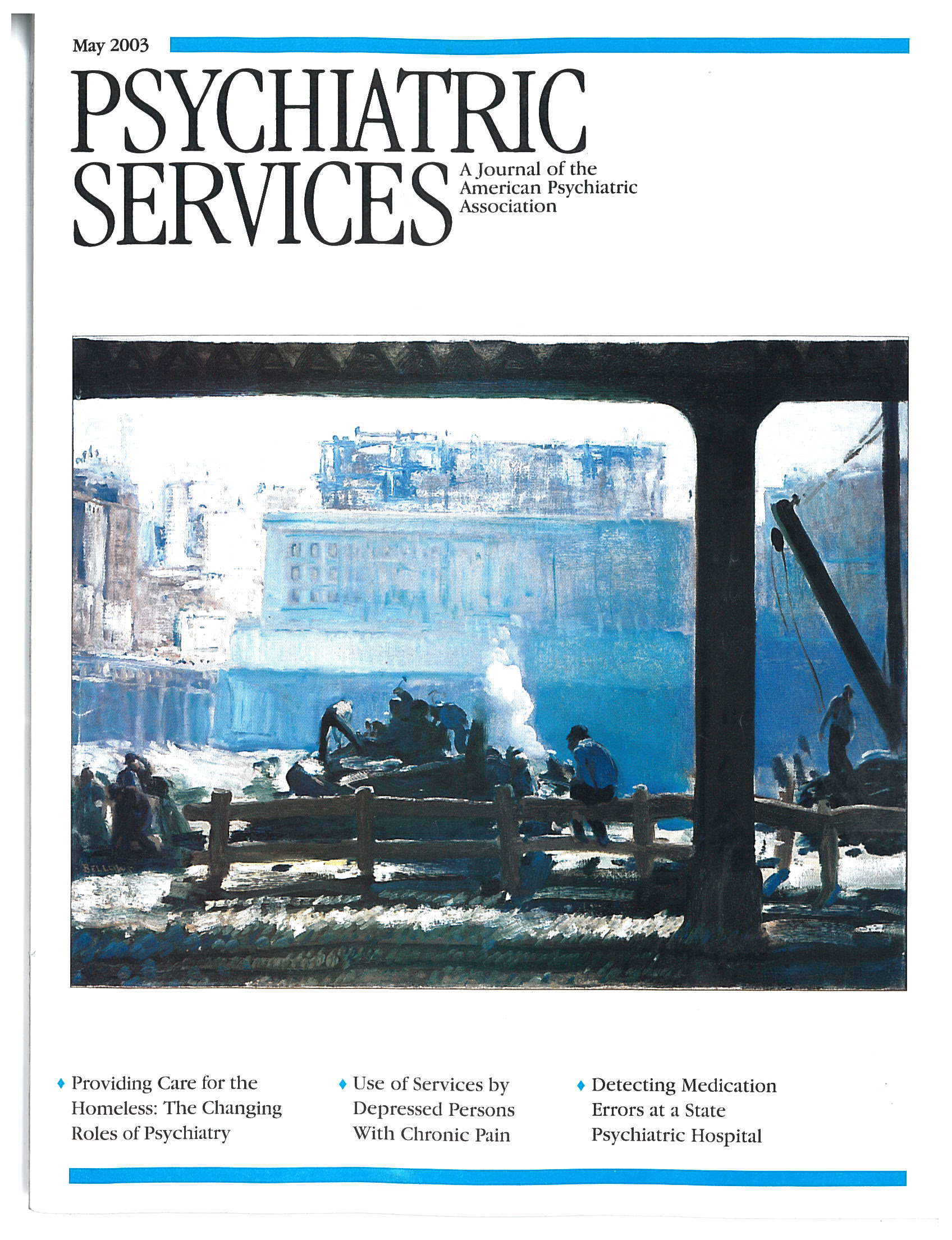Impact of Structured Clinical Interviews on Physicians' Practices in Community Mental Health Settings
Abstract
OBJECTIVE: Budgetary constraints often limit practicing psychiatrists from conducting more thorough diagnostic evaluations. This study examined physicians' diagnosing and prescribing practices in the context of feedback from nurse-administered, structured clinical interviews of psychiatric patients in publicly funded outpatient mental health settings. METHODS: A randomized controlled trial was conducted of newly enrolled adult psychiatric patients who made at least one return visit for care at two county-supported outpatient clinics. Within two weeks after their intake psychiatric evaluation, patients were randomly assigned to receive a nurse-administered Structured Clinical Interview for DSM-IV-Clinician Version (SCID) (N=158) or to a control condition (N=138). The attending psychiatrist was provided with the SCID results. Abstracts from clinical records were used to measure differences in physicians' rates of ordering additional diagnostic evaluations, changing diagnoses, and changing types and dosages of medications at three- and six-month follow-ups. RESULTS: Physicians treating patients who received SCIDs, compared with control patients, were more likely to order evaluative procedures, update and change diagnosis (consistent with SCID results), and change prescription medication type and were less likely to increase patients' medication dosages. CONCLUSION: Nurse-administered structured clinical interviews are feasible and effectively help psychiatrists in publicly supported mental health clinics reach more accurate diagnoses for newly enrolled patients.



